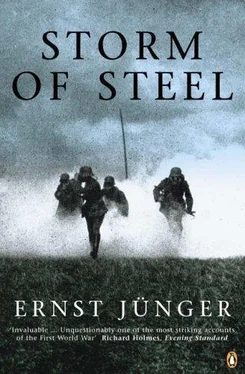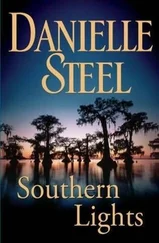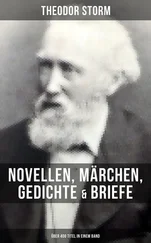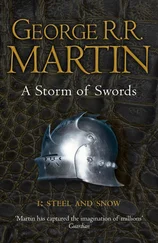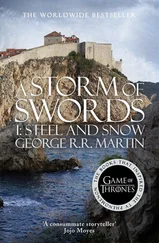Age both softened and exacerbated Junger’s provocativeness. On the one hand, it provided him with distractions and luxuries, made him venerable and respectable (he was an incarnation of Yeats’s senatorial ‘smiling public man’); on the other, his mere continued existence was enough to goad to fury a wide band of literary and political enemies in Germany. Whether he wanted to or not- and he was often travelling the globe, researching unusual life-forms in remote settings – he remained a rallying-point and an object of fascination for the Fascist Right, and of horror and embarrassment for the Left. Honorific occasions involving Junger, like the award of the Goethe Prize in 1982 – which at the time was compared to something that might have happened in Weimar – would invariably degenerate into typisch deutsch literary-political showdowns – very ugly and terribly principled. As an instance of the unbridled hatred felt for Junger in certain quarters, in the 1990s, in Berlin – only in Berlin! – a gay musical version of Storm of Steel played to appreciative houses: a multiple and systematic persiflage of an experience and values that to him were sacred. One doesn’t know whether to laugh or cry.
A very long life, like Junger’s (the name, by the way, does indeed mean ‘younger’), brings with it a preoccupation with its form, with its meaning, with its straightness. This is something one sees as well in such survivor figures as the Norwegian Knut Hamsun (who lived to ninety-three), Ezra Pound (eighty-seven), or Boris Pasternak (a stripling seventy). Where Richard II says, ‘Arm, my name,’ Junger seems to say, ‘Arm, my age.’ He refers, I don’t know how humorously, to his early – pre-1930? – writing as his ‘Old Testament’. He quotes Ranke on the desirability for historians of attaining a great age.
It must be tempting – perhaps especially if one happens to be a diarist as well – to look down on younger people and say: what do they know? According to Octavio Paz, the claim to be the father of one’s antagonist is a serious snub in Mexico. In 1984, a very old and spry Junger turned out at Verdun with Helmut Kohl (whose favourite author he was) and Francois Mitterand (another admirer) to celebrate Franco-German reconciliation. Book titles underline his authority: Siebzig verweht (Seventy Gone, his journals of the 1970s), Zwei Mal Halley (Halley Two Times, a reference to the comet, which he saw in 1910, and again in 1986). Junger made the claim that he had never regretted anything he had written, or taken anything back. In fact, his literary output and profile were subject to minute supervision and protection, by the author, his family, his publishers, his estate. (Cocteau observed pricelessly that Junger ‘didn’t have dirty hands, he had no hands’.) Nothing resembling a biography appeared before the late 1980s. Some books of his were retired, others promoted. One of the English studies on him, by Elliot Neaman, has a section heading lapidarily called: ‘ Junger revididus’; it may not be good Latin, but it’s a good joke.
The most revised of his books was the earliest of them, precisely Storm of Steel. Typically, there is as yet no full-length study of the changes that were made – though there is no shortage of adversarial and defensive and specialist writing on Junger – but it seems there were as many as eight different published versions of the book: the earliest in 1920, for first publication, the latest in 1961, for the first edition of the Collected Works. No Junger text, one critic groused, has ever been called definitive. (Even the copy I worked from seemed not to carry a date or ascription, although I’m sure it was the newest version.) In between, the most substantively different texts were those of 1924 and 1934. It is because of this that, even if I had wanted to, I couldn’t have left out of my introduction all mention of Junger’s remaining eighty-odd years. Storm of Steel accompanied Junger through most of his extremely long life, and he tinkered with it, one would have to say, obsessively. It was often tempting to put away the discussions of him once they got past the war, and pretend that Junger had died, or disappeared into obscurity or uncontentiousness, but because the later ideas and contexts have some influence, to say the least, on a kind of text-fleuve that evolved over the best part of sixty years, I had at least to allude to them in passing. As well as being one of the earliest books on World War I, Storm of Steel is also one of the newest, and it seems likely that it gained in both respects. If one might put it like this, in addition to outflanking the competition by getting in ahead of them, Storm of Steel also outlasted them: the experience it offers the reader is both more immediate and more considered, more naively open-ended and more artistically complex, more Sartre-ish and more – what shall I say? – Paterian.
The first revision was in 1924, when Jiinger completely rewrote his book for his new publisher. This first revised edition has been called the first ‘literary’ version of Storm of Steel. It was also a vigorously, even aggressively, Nationalist version, which may have played well with the domestic audience of that time, but perhaps less well abroad. It was, as luck would have it, this version that was translated into English in 1929, and French in 1930. In the copy of Basil Creighton’s English translation that I have, there is a somewhat ingratiating ‘Author’s Preface to the English Edition’, with references to Gibraltar and Waterloo, where Junger’s Hanoverian regiment – or, rather, their predecessors – had made common cause with the English against the French, and careful compliments on the bravery and manliness of the British: ‘Of all the troops who were opposed to the Germans on the great battlefields the English were not only the most formidable but the manliest and the most chivalrous.’ But, once into the book, for instance in the chapter ‘The Great Offensive’, there are passages like this:
It [the trench] seethed with English. I fired off my cartridges so fiercely that I pressed [sic] the trigger ten times at least after the last shot. […] Only a few got away. A NCO was standing near me gaping at this spectacle with mouth agog. I snatched the rifle from his hands in an uncontrollable need to shoot. My first victim was an Englishman whom I shot between two Germans at 150 metres. He snapped shut like the blade of a knife and lay still.
This explicit bloodlust is tempered by Junger in later editions. Also gone is most of the generalizing and editorializing, much of it completely banal, as for example this sentence (earlier on in the same chapter): ‘No one who has lived through moments like these can doubt that the course of nations in the last resort rises and falls with the destiny of war.’ Gone too is the fanfare at the very end: Though force without and barbarity within conglomerate in sombre clouds, yet so long as the blade of a sword will strike a spark in the night may it be said: Germany lives and Germany shall never go under!’ I suspect that it was the awareness that he was now read by an international public, as well as tact and personal maturity and a sense of the prevailing levels of violence and irresponsibility in public speech in Germany that acted on Junger. His 1934 revision was dubbed the ‘quiet’ version by one recent critic. The impartial dedication, ‘ For the fallen’, was new. Just as it was ironic that it was the most bloody and rhetorical version of Storm of Steel that was spread abroad, so it was ironic that the Nazis presumably had to content themselves with this one when they boosted the book at home, in the years of the Third Reich.
Читать дальше
